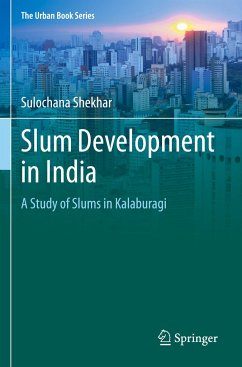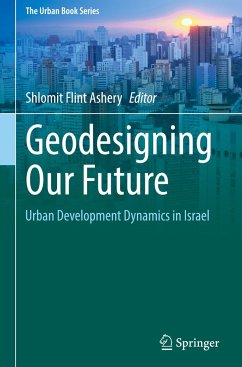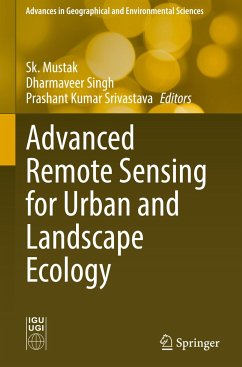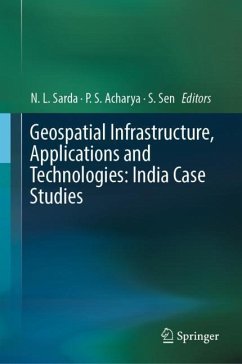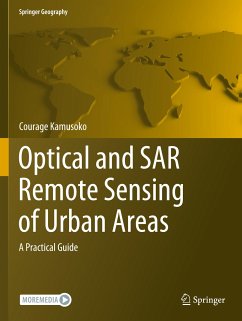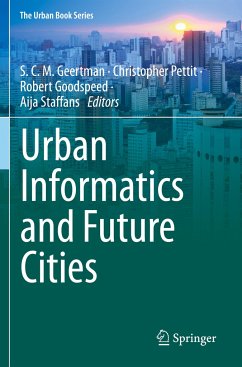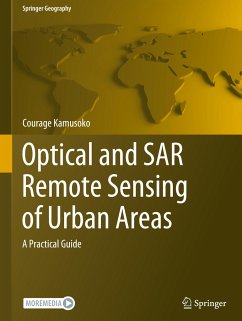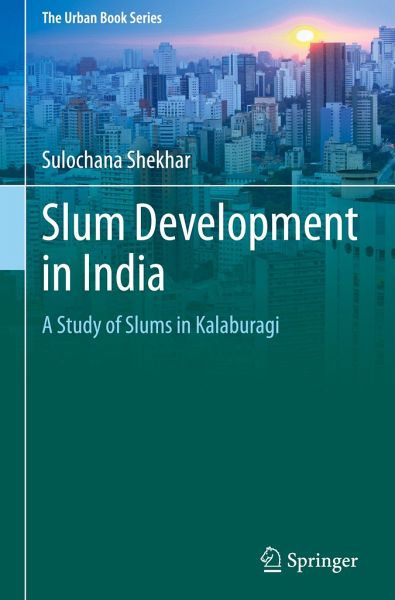
Slum Development in India
A Study of Slums in Kalaburagi
Versandkostenfrei!
Versandfertig in 1-2 Wochen
123,99 €
inkl. MwSt.
Weitere Ausgaben:

PAYBACK Punkte
62 °P sammeln!
This book is an earnest effort in understanding the slums and their needs by taking a case study of Kalaburagi, India. This study aims to contribute sustainable methodologies to advance the living conditions of slum dwellers and for better execution of slum policies. The core objectives are: 1) mapping the existing slums of Kalaburagi (formerly Gulbarga) city using slum ontology from very high-resolution data and validating the slum map through ground survey and using reliable data; 2) developing a model to understand the factors which are responsible for the present growth as well as to predi...
This book is an earnest effort in understanding the slums and their needs by taking a case study of Kalaburagi, India. This study aims to contribute sustainable methodologies to advance the living conditions of slum dwellers and for better execution of slum policies. The core objectives are: 1) mapping the existing slums of Kalaburagi (formerly Gulbarga) city using slum ontology from very high-resolution data and validating the slum map through ground survey and using reliable data; 2) developing a model to understand the factors which are responsible for the present growth as well as to predict the future growth of slums; 3) estimating the housing demand of urban poor and suggesting a suitable site for the rehabilitation program; and 4) suggestions for the better intervention of government policies with special reference to in-situ program.
Urban is the future, and slums are its reality. Sustainable development goals are directly and indirectly concerned about theincreasing urbanization and the slums. Housing the urban poor and affordable housing to all are the national missions. Practically making these plans successful depends on a deep understanding of urban issues and proper methodology and technology to handle it. The participatory slum mapping, cellular automata slum model, housing demand analysis, and the spatial decision support system demonstrated in the book help in monitoring and managing the slums and thus lead towards a slum-free India.
Urban is the future, and slums are its reality. Sustainable development goals are directly and indirectly concerned about theincreasing urbanization and the slums. Housing the urban poor and affordable housing to all are the national missions. Practically making these plans successful depends on a deep understanding of urban issues and proper methodology and technology to handle it. The participatory slum mapping, cellular automata slum model, housing demand analysis, and the spatial decision support system demonstrated in the book help in monitoring and managing the slums and thus lead towards a slum-free India.



